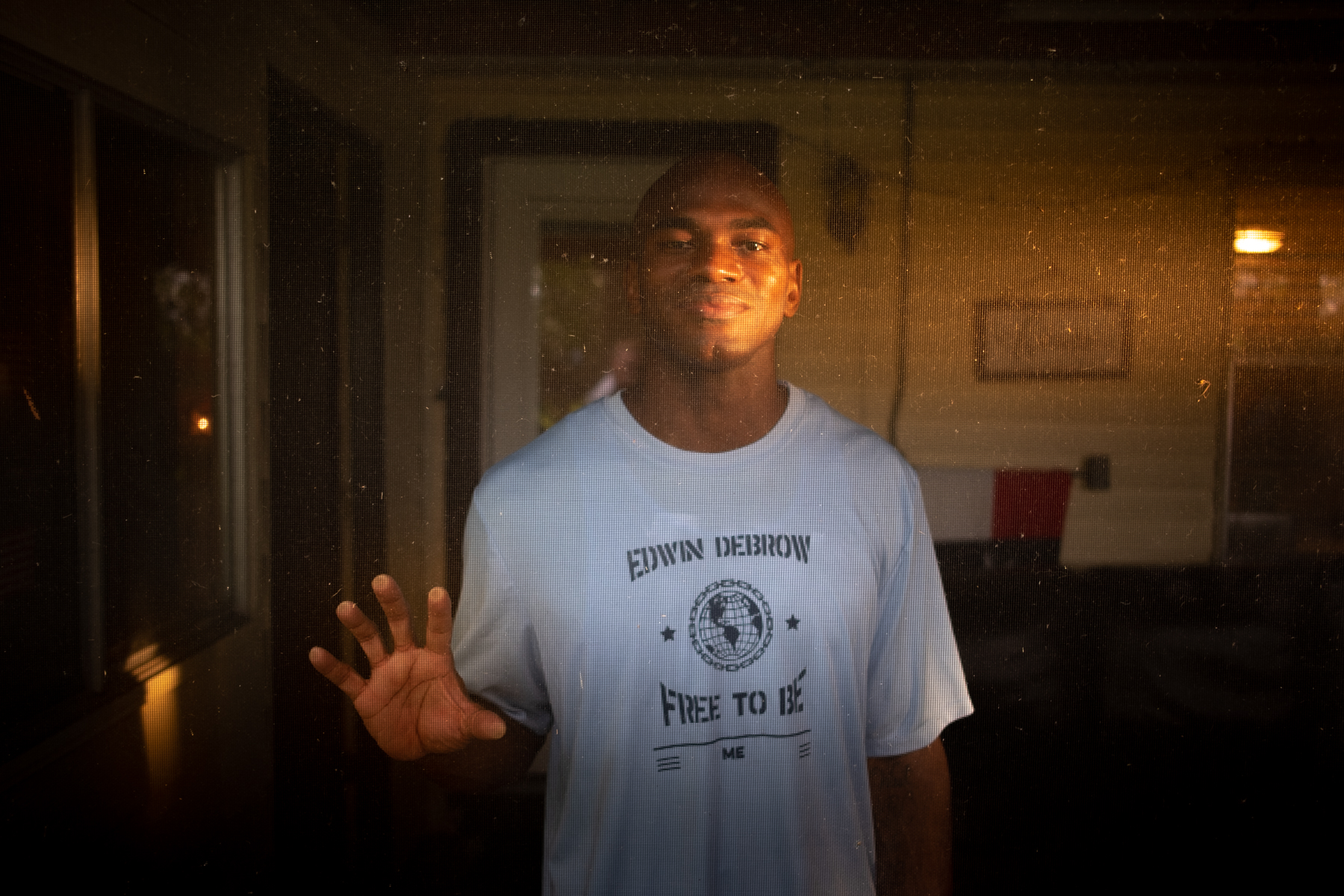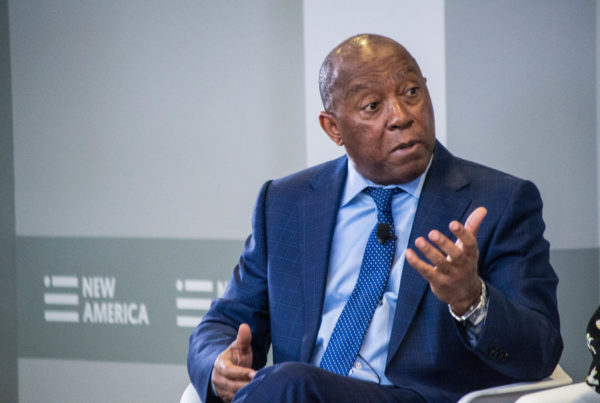In late August, Edwin Debrow left a Texas state prison at age 40, after spending almost 28 years incarcerated. He was convicted of murder at age 12.
Back then, Debrow was known as “Baby Gangsta” when he was part of the Crips in San Antonio. The course of his life changed dramatically one September day in 1991, when police arrested him for shooting and killing taxi driver Curtis Edwards after an attempted robbery.
Texas Monthly writer Skip Hollandsworth followed Debrow’s story for years, and says he transformed from a rebel to a “model inmate.”
“He was called a ‘sick little monster’ by the DA’s office. President George H. W. Bush, back then, called him ‘an example of what is happening to our inner cities,’ so he became this illustration of what had gone wrong in American urban life,” Hollandsworth says.
He says that years into Debrow’s sentence, Sheila Bryan, a former elementary school teacher of Debrow’s, hired a lawyer to try to help him. That ultimately led to Debrow’s eligibility for parole in 2019.
Not everyone appreciated Hollandsworth’s coverage of Debrow’s transformation. Some saw him as sympathizing with a convicted murderer, he says. But that didn’t deter his reporting, and through it, he was able to show how Debrow shaved over 10 years off of his sentence.
“Edwin, himself, has said that if he was never allowed out until his final release date, then he would not complain,” Hollandsworth says. “How do you put a tab on murder? How do you say enough is enough, or how do you determine a sentence is long enough? And he was willing, he said, to ride out the sentence because what he did was unforgivable.”
After spending 70% of his life in prison, Debrow now lives with his girlfriend outside of Houston. He hasn’t experienced the free world since the 1990s, when he was a child.
“He’s known nothing but prison life, prison routine, prison schedules, prison violence,” Hollandsworth says. “He’s not learned how to live in the free world. And yet, he came out with great confidence and great support.”
Hollandsworth says Debrow, like many released inmates, is looking for work, and has to convince employers that they can trust him.
Written by Libby Cohen.













